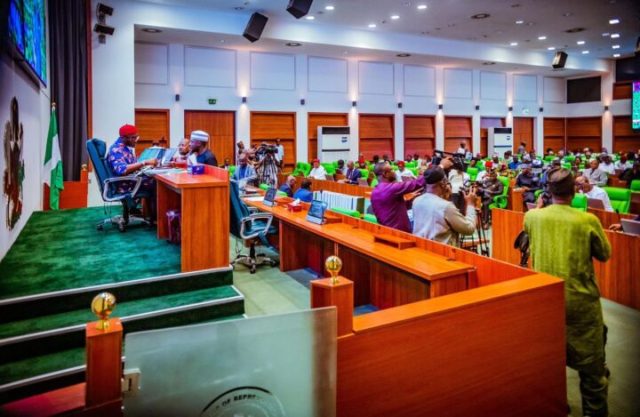The proposed bill seeks to replace the President with a Prime Minister to serve as the Head of Government and establish the office of the President as a ceremonial leader.

Some members of the House of Representatives have introduced three bills, seeking to alter the Constitution of the Federal Republic of Nigeria to change from the current Presidential system to a Parliamentary system.
They also noted that the transition will take place at all levels of government – Federal, State, and Local.
The bills which read; Constitution of the Federal Republic of Nigeria, 1999 (Alteration) Bill, 2024, HB.1115, HB.1116, and HB.1117 sponsored by Rep. Kingsley Chinda (PDP, Rivers), the Minority Leader, and 59 others were listed and passed through first reading at Wednesday plenary.
Addressing journalists on the general principles of the Bills, the Spokesperson of the sponsors, Rep. Abdussamad Dasuki (PDP, Sokoto) stated that the proposed alterations, when passed, would significantly impact the national political landscape.
He said the proposed legislation seeks to replace the President with a Prime Minister to serve as the Head of Government and establish the office of the President as a ceremonial leader with the elective offices chosen from the elected members of the legislature.
Dasuki further explained that when the parliamentary system of government was practised in the First Republic, it worked for the country.
“The bills presented today seek a return to the system of government adopted by our founders, which made governance accountable, responsible responsive, and ultimately less expensive. With the presentation of these bills today, we hope to achieve the following: Ignite, and provoke a national conversation about the future of the Nigerian governance system.
“To ensure robust public debates, stakeholder consultations, expert analyses, and a thorough and informed decision-making process.
“To raise awareness about this significant development and encourage constructive dialogue on the potential implications of these proposed constitutional alterations. The future of Nigerian governance rests on informed public engagement, and responsive and responsible leadership.
“Our conviction is that a streamlined Executive Branch, which replaces the President and Vice President with a Prime Minister and Cabinet chosen from the legislature, could lead to a smaller central government, reducing salaries and administrative expenses.
“We also hold strongly that shifting the election of Governors and Local Government Chairmen from the general election to votes within their respective legislative bodies could save billions spent on state and nationwide campaigns,” Dasuki stated.
